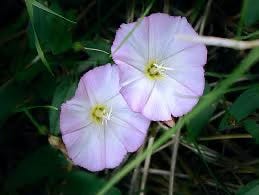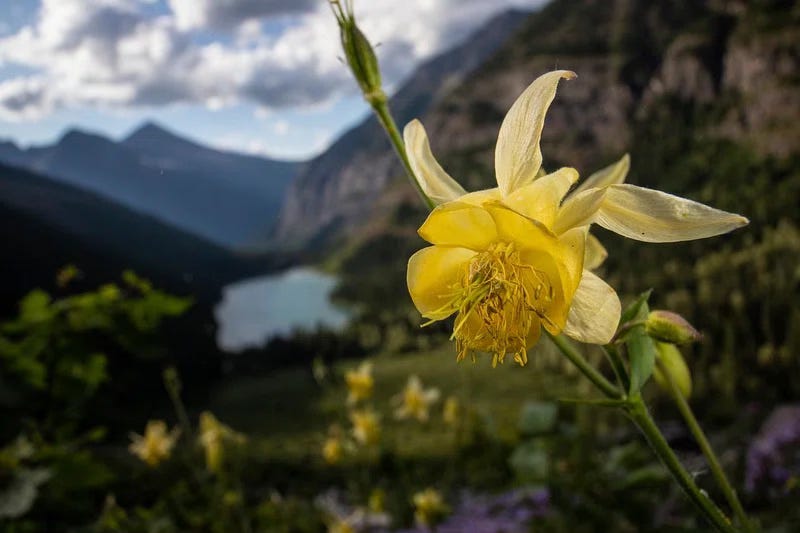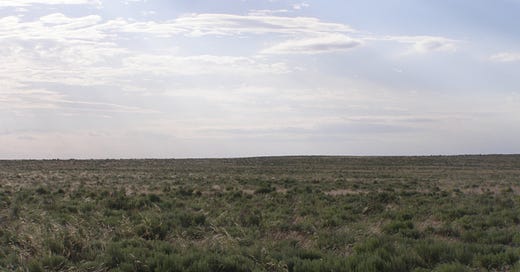I received Soil: The Story of a Black Mother’s Garden as a gift from a friend last winter. After reading Michael Pollan’s Second Nature with our book club (see that book review here), she thought Camille T. Dungy’s book might provide a different perspective on the similar themes of nature, gardening, and humanity’s place in the environment.
My friend was right. Reading Second Nature, I felt there were a few things I was missing from a book on gardening and ecology, such as acknowledgement of Indigenous traditions and the way that our different identities shape how we interact with the land.
Soil, through the omnipresent lens of Dungy’s garden, provides perspectives on nature, motherhood, our relationship with the land, and Dungy’s personal experiences as a Black woman navigating life in the United States.
Soil documents Dungy’s journey creating a pesticide-free, biodiverse garden of native plants outside her Colorado home. Dubbed the “prairie project,” the garden is a way to reconnect with the natural ecosystem of Northern Colorado, to learn about all of the different flowers, trees, shrubs, birds, mammals, insects, etc. that the land supports.
But it’s also a metaphor for Dungy’s life. She weaves stories about the garden and the plants that grow there with personal anecdotes. She talks about her marriage, her daughter, her parents, her identity as a Black woman and a mother, and her work as a poet and writer, all beautifully tied in with her prairie project journey.
In one chapter, Dungy compares her battle with bindweed (Convolvulus arvensis), a pretty but aggressive vine that threatens the other plants in her garden, with the aftermath of the 2016 election, watching the proliferation of hate and intolerance following Trump’s win.
“I’ve come to understand that I’ll struggle with bindweed, one way or another, until I give up. Or I die,” Dungy writes.

Dungy also repeatedly talks about her relationship to the land, the perpetual give and take in which she engages. She makes it clear that in our society we are constantly taking from the land, extracting resources and space, and that she is complicit in that society.
But Dungy’s love for the land seeps through and it’s clear that she tries hard to give back. She plants native flowers, eschews pesticides, and keeps careful tabs on the family of rabbits living in her backyard.
Dungy’s ancestors were not the ones who colonized this land from the Indigenous people. They were not brought here by choice and they had to form different relationships with the land, guided by self-preservation and self-reliance, community and culture, as opposed to profit or extraction.
Yet as an American in the 21st century, Dungy wrestles with her place in a society built on colonialism and capitalism, where it is difficult to feel like we are making a positive impact on our shared earth.
“I am not always sure that I belong in Colorado,” she writes. “Though I have my little plot of land here that I love, I am nothing but a settler in this state. And not always a welcomed one. I try to reinstate some of the life that the land once knew.”

Soil, like its namesake, isn’t a perfect, pristine narrative. It braids together many nonchronological stories and perspectives from Dungy’s life – a relatable and refreshing stream of consciousness.
It’s not just about the prairie project, but ecology isn’t so simple a discipline either. I think Soil captures the human component of the environment – the politics, the family stories, the heritage, and the ways in which identity shapes our relationship with the land.
And if you’re looking for a book to add to your reading list for 2025, particularly one that provides valuable insights on the environment, one that addresses the honest, human component of sustainability, and one that can be read at a forgiving pace, I highly recommend Soil: The Story of a Black Mother’s Garden by Camille T. Dungy.
“If I understand God as separate, as above all creation, then what happens elsewhere, to others, may not matter much to me. But let me believe God is in all creation, that birds and beasts and boulders and streams are all part of God’s body. How much better might I treat the lives around me?” — Camille T. Dungy, Soil: The Story of a Black Mother’s Garden



